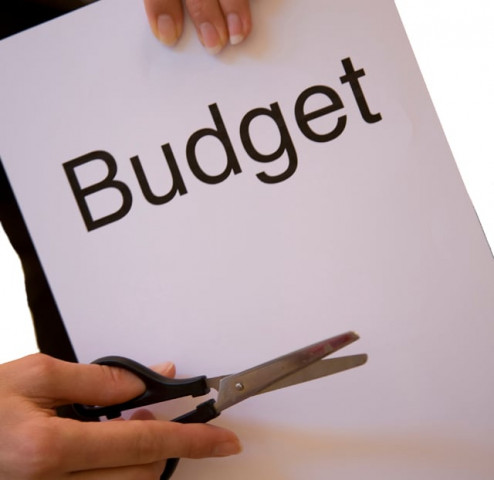A budget beyond rhetoric
Game-changing ideas and transformative actions, not routine fixes, are what Pakistan needs now

There is no dearth of proposals and ideas for the forthcoming federal budget for the year 2025-26, nor is there any shortage of ambition and claims by the finance ministry about the poor-friendly nature and positive impact of the budget on the economy of Pakistan.
What, in fact, is lacking is any innovation or change — and above all, the resources to meet the aforementioned aspirations and claims. Why not think out of the box and come up with some game-changing and transformative actions? This is the time for Pakistan to defy rhetoric and prove an ability to do something different and unexpected. Some of these ideas are as follows.
First and foremost, there is a real need to expand the revenue base and numbers. Every year there are certain adjustments in tax rates and incidence, primarily to expand the taxpayers' base. This adds a couple of hundred billion rupees each year, in addition to the normal increase in the revenue base due to economic growth.
This time, why not meet this target by another source — bar the banks, particularly the government-owned ones, from loan write-offs and recover those as part of the federal revenue? This would yield at least a couple of hundred billion rupees. Moreover, why not cease the subsidies to state-owned enterprises, especially the likes of Pakistan International Airlines (PIA), Pakistan Steel, and Pakistan Railways? This would save another few hundred billion rupees. This would spare the poor taxpayers, especially individuals, who must bear the burden of increased tax collection every year.
Among the more standard and expected actions to increase revenue is the implementation of comprehensive tax reforms. This includes broadening the tax base by bringing more individuals and businesses into the tax net.
Simplifying the tax code, reducing exemptions, and enhancing tax compliance through digitalisation and automation can significantly improve tax collection. Additionally, introducing progressive taxation policies can ensure that the wealthy contribute their fair share to the national exchequer.
Secondly, rather than curtailing public sector expenditure in the development sector, it is imperative that we increase it. Investing in infrastructure is crucial for boosting productivity and economic growth. The government should prioritise the development of transportation networks, energy projects, and digital infrastructure by itself rather than relying only on the China-Pakistan Economic Corridor (CPEC).
Public-private partnerships (PPPs) can be leveraged to attract private investment in large-scale infrastructure projects. Improved infrastructure will not only facilitate international and internal trade and commerce but also enhance the overall quality of life for citizens.
Thirdly, it is important to incentivise and invest more in the agriculture sector rather than finding ways to tax it. Agriculture remains a vital sector for Pakistan — not only for the economy and jobs but for the very basics of society and the future of food security. Increasing agricultural productivity will have a transformative impact on the whole economy and society. The government should invest in modernising agricultural practices, providing access to high-quality seeds, fertilisers, and irrigation systems. Promoting research and development in agriculture and offering training programs for farmers can lead to higher yields and better-quality produce. Additionally, establishing efficient supply chains and reducing post-harvest losses can improve the profitability of the agricultural sector.
Fourthly, it is important to announce an impactful and sizable support package for the promotion and strengthening of Small and Medium Enterprises (SMEs). SMEs are the backbone of Pakistan's economy, and supporting their growth can lead to substantial economic benefits. The government should introduce targeted incentives for SMEs, such as a blanket tax break for innovation-oriented SMEs, low-interest loans, and grants for innovation and technology adoption. Establishing business incubators and providing access to training and mentorship programmes through government support programmes can also help SMEs thrive and create more job opportunities.
Fifthly, it is time to adapt the fiscal system to promote innovation and technology. Innovation and technology are key drivers of economic growth in the modern world. The government should invest in research and development (R&D) and promote collaboration between academia, industry, and government institutions. Providing grants and incentives for startups and tech companies can spur innovation and create new business opportunities. Additionally, enhancing digital literacy and expanding access to high-speed internet can empower citizens to participate in the digital economy.
Sixthly, to ensure inclusive growth, it is essential to strengthen social safety nets and provide support to vulnerable populations. The government should enhance resources for social welfare programmes such as the Benazir Income Support Programme (BISP), but also expand these to healthcare, education, and housing. Implementing targeted cash transfer programs and providing subsidies for essential goods can help alleviate poverty and improve the standard of living for marginalised communities.
It is quite easy, despite the challenging economic situation, to come up with a budget with some adjustments in the usual economic and budget toolkit and create a political marketing package for it. It may, however, be much easier for the citizens, more impactful in the long term, and better for the country if some game-changing actions are taken at the cost of short-term political capital.
THE WRITER IS AN INTERNATIONAL ECONOMIST





















COMMENTS
Comments are moderated and generally will be posted if they are on-topic and not abusive.
For more information, please see our Comments FAQ